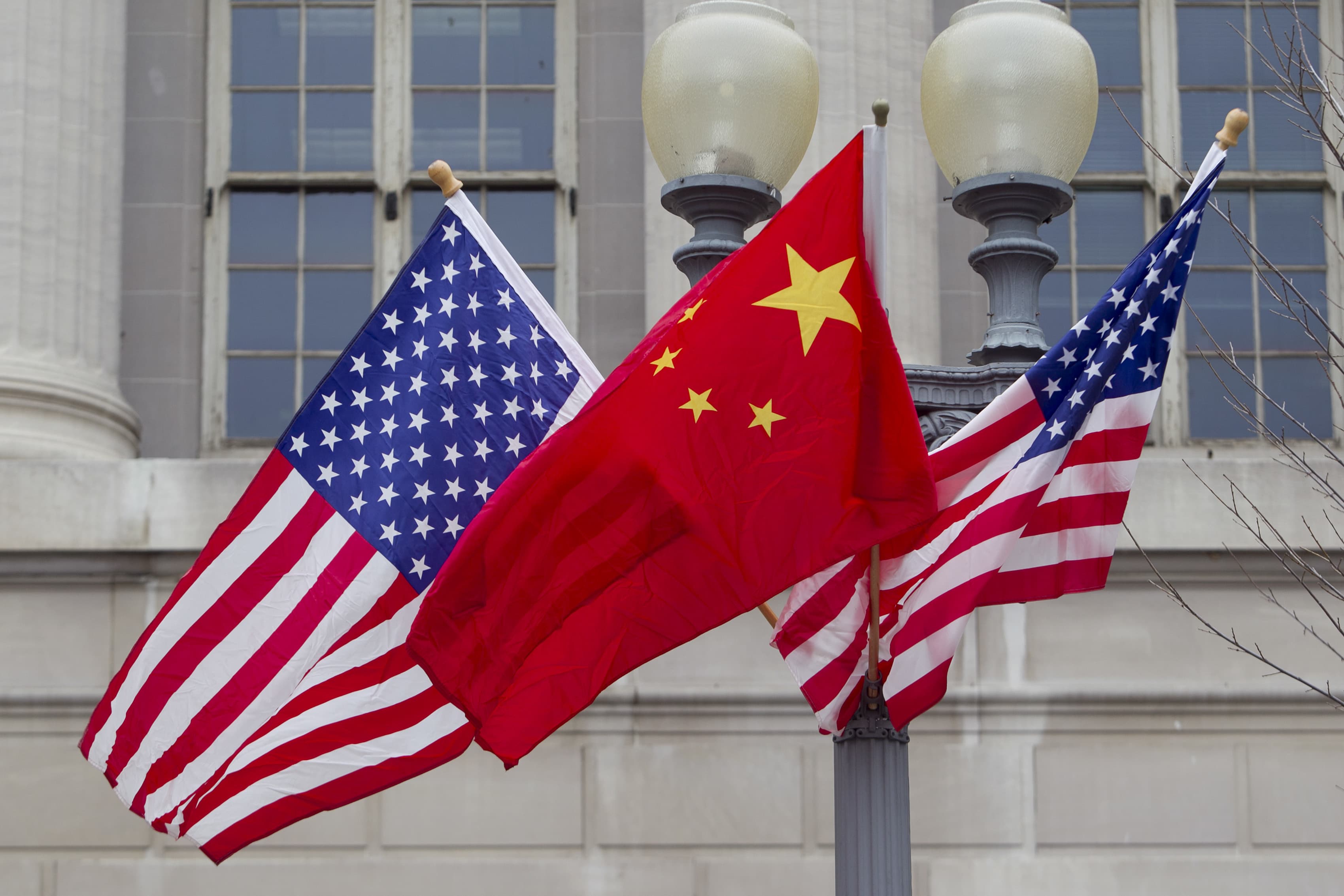U.S. and China flags along Pennsylvania Avenue in Washington, D.C. on Jan. 17, 2011.
Andrew Harrer | Bloomberg | Getty Images
Delisting Chinese companies from U.S. stock exchanges is “a pointless drive” that will neither deny those firms access to American capital markets nor hurt China’s growth, according to a report by think tank Peterson Institute for International Economics.
U.S.-China relations are the worst they have been in decades and the stock market appeared to be one of the latest fronts where tensions between the two countries are playing out. The Senate in May passed a bill that could ban many Chinese companies from listing shares in the U.S. Last month, President Donald Trump urged regulators to find ways to tighten scrutiny on those firms.
But there are several ways that Chinese companies can still get money from American investors, including through the private equity market and Hong Kong’s stock market, said the PIIE report written by Nicholas Lardy and Tianlei Huang.
“The key point is that the market for capital is global. Shutting out Chinese firms from listing in the United States would not deny these firms access to US capital,” the authors wrote.
There are about 230 Chinese companies — totaling about $1.8 trillion in market capitalization — listed on the Nasdaq and New York Stock Exchange, noted the report.
It pointed out that U.S. private equity firms have been buying out those listed Chinese companies. One example is Warburg Pincus and General Atlantic, which recently led a deal to take Chinese tech firm 58.com private, said PIIE.
The key point is that the market for capital is global. Shutting out Chinese firms from listing in the United States would not deny these firms access to US capital.
Peterson Institute for International Economics
In addition, an increasing number of U.S.-listed Chinese companies have sought secondary listings in Hong Kong — a financial and business center in Asia that is open to international investors, said the report. Chinese companies that have launched secondary offerings in Hong Kong include major tech players Alibaba, JD.com and NetEase.
“US institutional investors and US residents who want to own shares in these companies will simply buy them in Hong Kong. Similarly, foreign investors who have invested in Chinese companies via New York listings will buy them in Hong Kong,” read the report.
‘Unlikely’ decoupling
The difficulties in totally cutting Chinese companies off from U.S. investors underscore how interdependent the world’s top two economies have become.
That integration looks likely to increase — especially in the financial sector — despite Trump’s warning last month that “a complete decoupling from China” remained a policy option, said PIIE.
U.S. financial institutions are increasing their presence in China, where authorities are gradually loosening rules on foreign ownership. PIIE listed examples of American companies that have taken advantage of China’s opening up its financial sector:
- Goldman Sachs in March 2020 received approval to increase its stake in its joint venture securities firm, Goldman Sachs Gao Hua Securities, from 33% to 51%;
- At the same time, Morgan Stanley similarly was allowed to increase its stake in its joint venture securities firm, Morgan Stanley Huaxin Securities, from 49% to 51%;
- Just last month, American Express got the approval to be the first foreign credit card company to launch onshore operations in China through a joint venture.
Such developments will make financial decoupling between the U.S. and China “increasingly unlikely,” wrote the PIIE authors.
“For all the fireworks over tariffs and investment restrictions, China’s integration into global financial markets continues apace,” they said.
“Indeed, that integration appears on most metrics to have accelerated over the past year. And US-based financial institutions are actively participating in this process, making financial decoupling between the United States and China increasingly unlikely.”
